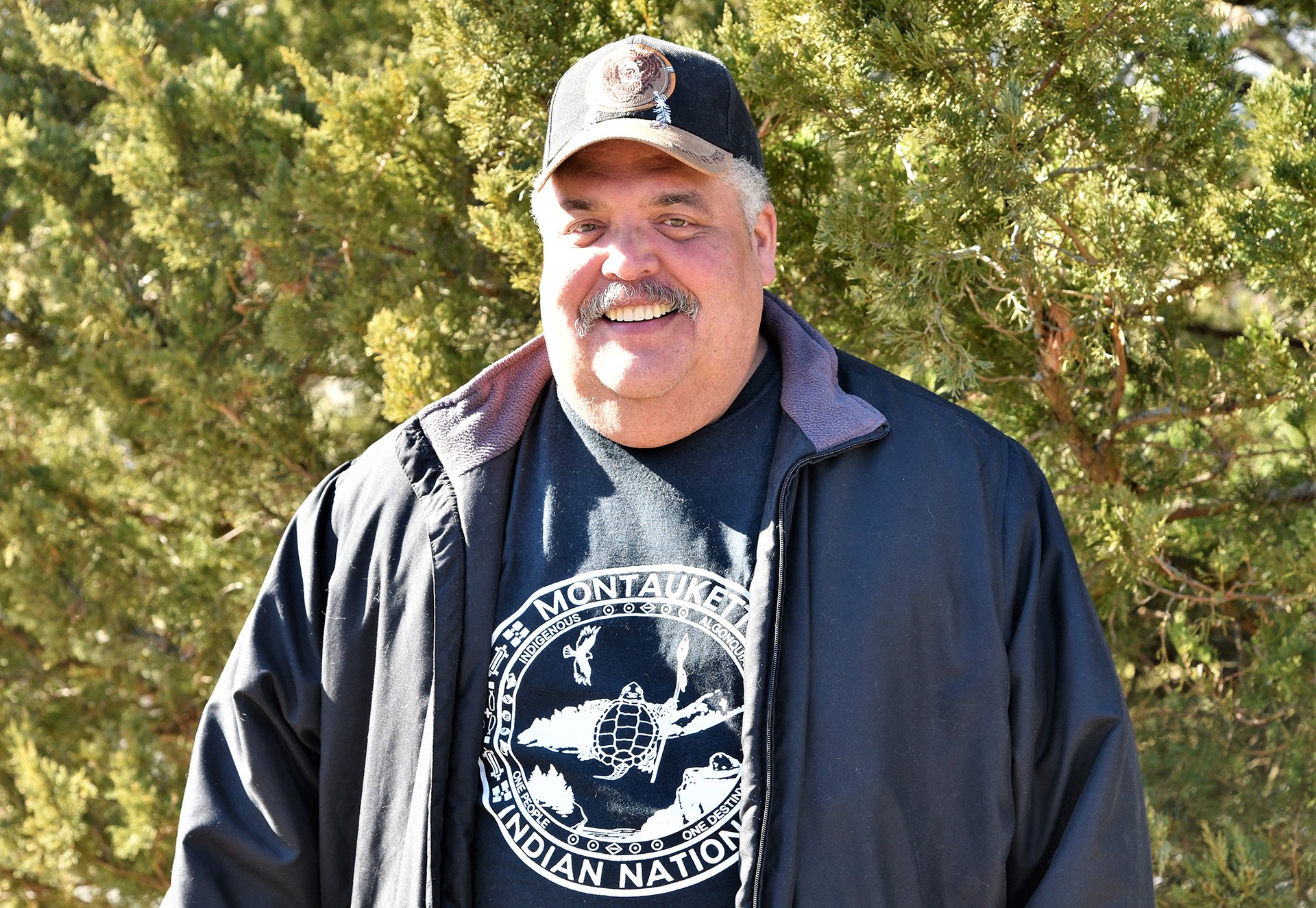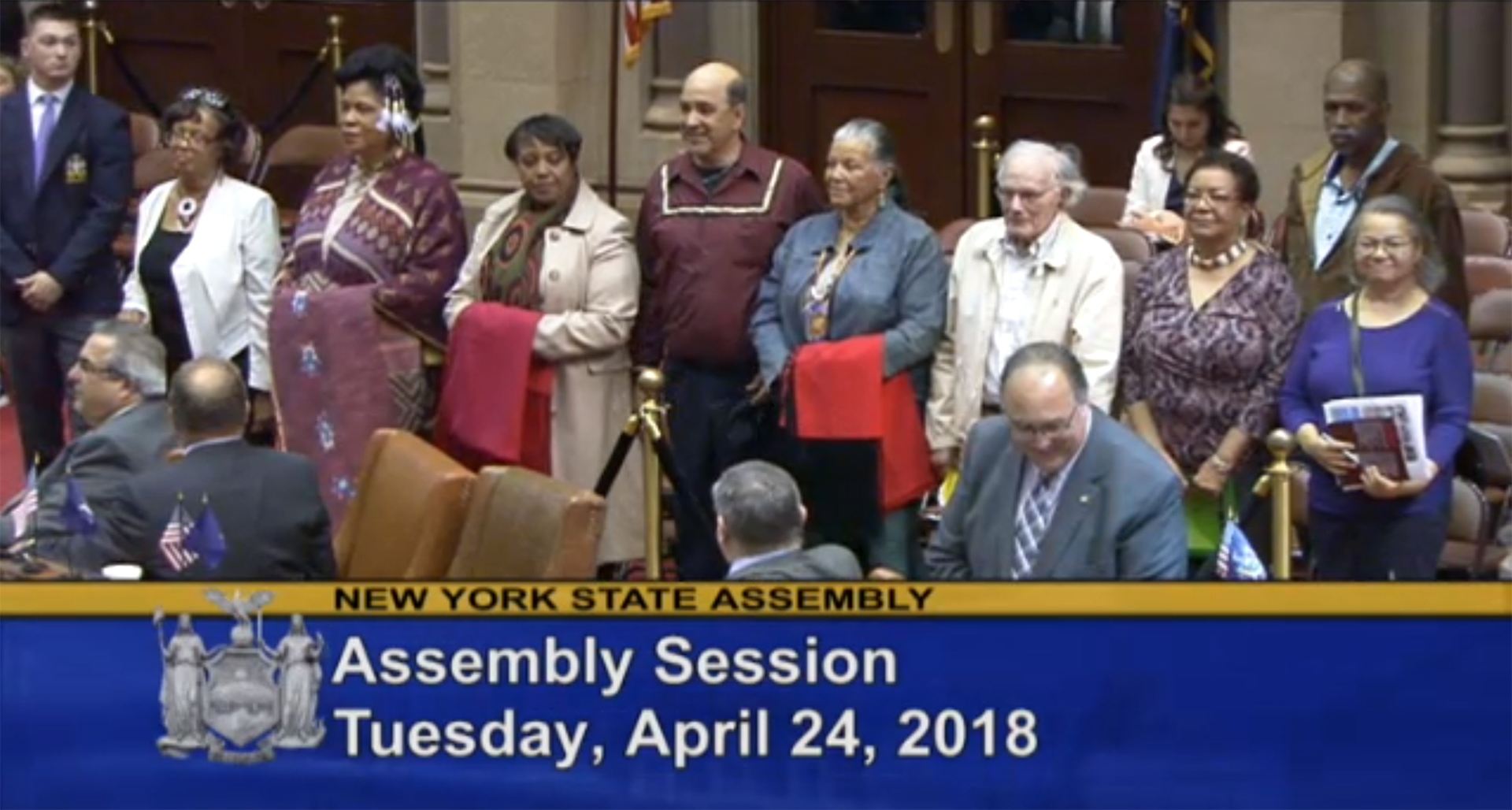Montauketts Wait And Wonder


October 11, 1910 is a day of infamy for the Montaukett Native American Tribe, but it should be shared by every East End resident who cares about local history and our heritage.
On that day, scholars concur, Judge Abel Blackmar of the Supreme Court of Suffolk County effectively stripped the tribe of not only thousands of acres of its tribal land in Montauk, but of its very existence.
Technically, the court decision was the culmination of arcane common law, a 25-year land grab by the developer Arthur Benson, a lot of dubious testimony, and some off-the-wall conclusions by Judge Blackmar. “They got screwed,” Assemblyman Fred Thiele said.
More to the point, said tribal leader King Robert Pharaoh of Sag Harbor, “He didn’t even have jurisdiction.”
The tribe has been fighting to get recognition from the state ever since, with Thiele and Senator Ken LaValle leading the way.
Still, what is tantalizing close remains elusive. After the Assembly and Senate overwhelmingly voted to do so, Governor Andrew Cuomo recently vetoed a bill that would have given back to the Montauketts what was stolen from the tribe — its name. It was the third time the governor has done so. Cuomo said he didn’t think legislation was a valid road to recognition, and that the tribe had to go through a standardized state process. “We should allow the administrative process to take its due course,” Cuomo said.
Others suggest a more cynical ploy: to avoid coughing up benefits the tribe has long been barred from collecting.
Pharaoh said that Cuomo’s reasoning is “valid.” But he is also cognizant that the Montaukett Tribe will be entitled to compensation. “We are not looking to throw people off their property,” he said. But certainly, some moneymaking ventures would be possible like, for example, an “Indian village” open to tourists or a museum to catalog the tribe’s heritage.
“The state knows the possibilities. They are not stupid,” Pharaoh commented wryly. The Department of State has yet to produce its oft talked-about evaluation of the Montauketts’ official status.
“Providing state recognition to an Indian tribe warrants thorough and careful consideration of all parties,” the governor wrote in his veto message. “However, this bill would require the state to bypass such analysis and recognize the Montaukett Indian tribe as a nation, without any process.”
In 2013, the legislature passed a bill setting up a process by which the Department of State could review the tribe’s status and issue recognition, but it languished. “There’s no evidence that they’ve done anything,” Thiele said. “No one ever called me,” Pharaoh said.
Pharaoh’s manner mirrors that of his mother, Olive, who was queen until her death. The tribe is, for the most part, non-confrontational — proud of the Montaukett heritage and cautious in its dealings with would-be backers, financial and otherwise. But 20 years ago, a confrontation between two factions within the tribe got Pharaoh’s dander up, and he still bristles at what he says was a betrayal.
In those days, Native American tribes were being encouraged — in many cases financially — to seek recognition as a means to open gambling casinos.
Robert Cooper, a former East Hampton Town Board member and a self-proclaimed member of the Montaukett tribe, attempted what basically amounted to a coup d’état against the Pharaoh branch of the Montauketts.
Cooper was involved with a group hoping to use the tribe’s land ownership claims in Calverton to open a gambling operation there some day. “It’s our land,” he said. “History will tell you a lot of other lands on Long Island are ours, too, but we don’t want to uproot any people.”
Cooper held an election that he said he won. “According to tribal custom, the succession to the throne used to go to the oldest living male descendant of the eldest chief,” Cooper maintained. “I am the chief of the tribe, period,” he proclaimed.
Pharaoh has another take on the dispute. “My mother was queen. She died, and that’s how I became king.” Cooper, he said, contacted a small group of tribesmen and convinced them to back him. The matter was finally settled and the tribe recognizes Pharaoh as the leader.
“They are foreigners on soil and water that once was their own. We certainly owe them a lot. For starters, however, the least we can do is recognize them as a bona fide tribe. All it would take is a brief flourish with a pen in cursive on an official New York State document, but our proud governor, from a once foreign immigrant family himself, can’t even bring himself to do that simple little thing,” added Larry Penny, former longtime natural resources director for the Town of East Hampton.
rmurphy@indyeastend.com



